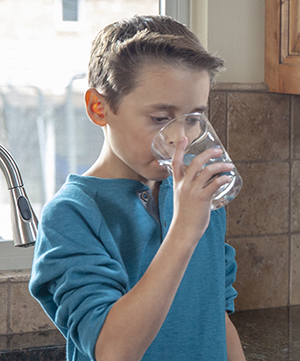For Kids: High Blood Sugar
Your body needs energy to do things. Energy comes from a kind of sugar found in the food you eat. This sugar is called glucose. Glucose travels in your blood. Without glucose you wouldn’t be able to study, play, or even eat or think. But if too much glucose builds up in your blood, you can feel sick. This is called high blood sugar (hyperglycemia). High blood sugar happens when you eat too much or don’t take enough insulin. It can also happen when you’re sick, worried, upset, or excited. It can happen if you haven't had as much exercise as normal. If your blood sugar gets really high, it can be dangerous.
What do highs feel like?
You likely felt some symptoms of high blood sugar (highs) right before you found out you had diabetes. These are some of the symptoms:
High blood sugar can be dangerous. And people with diabetes sometimes don’t feel any symptoms when they have high blood sugar. To be safe, test your blood sugar as often as you’ve been told to. Always wear a medic alert bracelet or necklace that says you have diabetes.
You can prevent highs
Don’t let highs get you down. Follow these 2 rules:
Rule #1: Always take your insulin. Follow the plan you work out with your healthcare team. Go over it from time to time.
Rule #2: Stick to your diet plan. Eat the right amount of food at your meals and snacks.
You can treat highs

You may get very good at preventing highs. But they will still happen from time to time. If you feel like you might be having a high, check your blood sugar right away. Or have an adult check it for you. Then do the below:
-
If your blood sugar is over 250, tell your parents or another adult right away. You will need to check for ketones in your urine. (Your healthcare team will show you how.)
-
Drink water or other sugar-free drinks. They help wash away ketones and help you not become dehydrated. (Ketones leave the body when you pee.)
-
You may need to take extra insulin. Your healthcare team will teach you how to figure out how much extra insulin to take when you’re having a high.
Playing it smart
Playing sports and being active can cause your blood sugar level to go up or down. Prevent highs by playing it smart:
-
Always test your blood sugar before you exercise.
-
If your blood sugar is 250 mg/dL or above, test for ketones. If your ketone levels are high, tell your parents or another adult right away. If your ketone levels are low, you may do mid- to moderate-intensity exercise.
-
Don't do intense exercise until your blood sugar is below 250 mg/dL. Intense exercise may make your blood sugar higher.
-
Drink lots of water. This is even more important when you’re exercising.
-
Tell an adult right away if you feel like you’re having a high.
Where to learn more
Still have questions about diabetes? Check out these websites:
-
American Diabetes Association, www.diabetes.org
-
Children with Diabetes, www.childrenwithdiabetes.org
-
Juvenile Diabetes Research Foundation, www.jdrf.org
Online Medical Reviewer:
Marianne Fraser MSN RN
Online Medical Reviewer:
Raymond Kent Turley BSN MSN RN
Online Medical Reviewer:
Robert Hurd MD
Date Last Reviewed:
2/1/2022
© 2000-2024 The StayWell Company, LLC. All rights reserved. This information is not intended as a substitute for professional medical care. Always follow your healthcare professional's instructions.